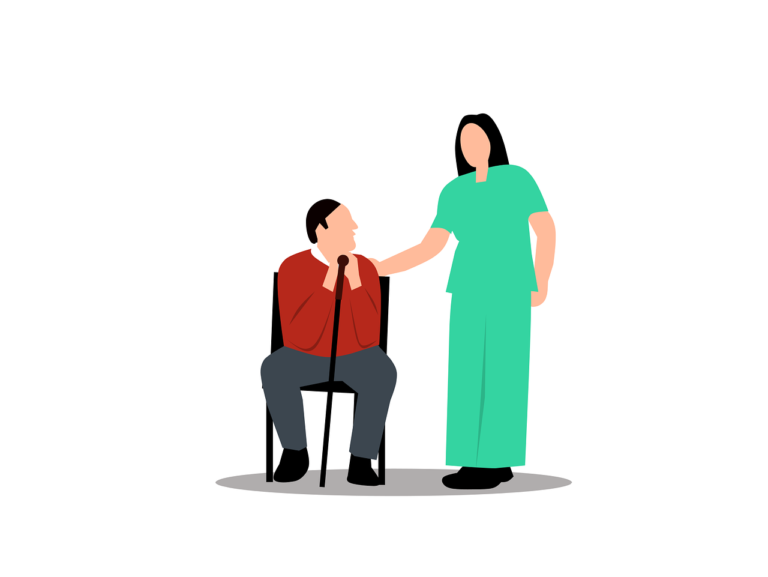Book Appointment Now

Navigating Job Interviews as a New Nursing Graduate
Landing your first nursing job can be both exciting and nerve-wracking. As a new graduate, you’ll likely face a range of interview questions designed to assess not only your clinical knowledge but also your communication skills, adaptability, and passion for patient care. Successfully navigating job interviews as a new nursing graduate requires thorough preparation, self-confidence, and the ability to articulate your strengths. Here’s a comprehensive guide to help you prepare and excel in your nursing job interview.
Why Preparation is Key for Nursing Interviews
As a new nursing graduate, the interview process is crucial in demonstrating that you’re ready to transition from academic learning to clinical practice. Interviewers are looking for candidates who are not only clinically competent but also compassionate and team-oriented. Preparation enables you to:
- Showcase your skills: Highlight your clinical knowledge and how you can apply it in real-world settings.
- Boost your confidence: The more prepared you are, the more confident and composed you’ll feel during the interview.
- Tailor your responses: Understanding the employer’s needs allows you to align your answers with the role’s requirements.
How to Prepare for a Nursing Interview
1. Research the Healthcare Facility
To make a positive impression, it’s important to research the healthcare facility where you’re interviewing. Understanding the organization’s mission, values, and specialties will help you align your answers with what they’re looking for in a candidate.
What to Research:
- Mission and values: Familiarize yourself with the facility’s core principles. This allows you to discuss how your nursing philosophy aligns with their goals.
- Patient population: Know who the facility serves. For example, if it’s a children’s hospital, emphasize your interest or experience in pediatric care.
- Specialties and units: If you’re interviewing for a specific department (e.g., ICU, ER), review current trends and challenges in that field so you can discuss them intelligently.
2. Review Common Nursing Interview Questions
While no two interviews are the same, many nursing interviews follow similar patterns. Prepare responses to both clinical and behavioral questions, focusing on real-world examples from your clinical rotations.
Common Nursing Interview Questions:
- Clinical competency: “How would you handle a patient in respiratory distress?” Be ready to describe step-by-step how you’d respond to critical scenarios.
- Teamwork: “Describe a time when you worked as part of a healthcare team. How did you contribute?” Showcase your collaboration and communication skills.
- Handling stress: “Tell me about a time when you dealt with a stressful situation in a clinical setting. How did you manage it?” Demonstrating your ability to stay calm under pressure is crucial.
- Patient care philosophy: “What’s your approach to patient care?” This question lets you explain your commitment to compassionate, patient-centered care.
3. Prepare Your Own Questions
Asking thoughtful questions during the interview shows your interest in the role and the facility. It also gives you valuable insight into the work environment and expectations.
Examples of Good Questions to Ask:
- Team dynamics: “Can you tell me more about the nursing team here? How do they collaborate?”
- Opportunities for growth: “What professional development opportunities are available for new nurses?”
- Patient care philosophy: “How does this unit or department ensure the delivery of high-quality patient care?”
Looking for nursing essay writing help?
Order Custom Nursing Essay
Highlighting Your Strengths as a New Nursing Graduate
One of the most important aspects of navigating job interviews as a new nursing graduate is confidently showcasing your strengths. While you may have limited work experience, you can leverage your clinical rotations, coursework, and certifications to demonstrate your preparedness for the role.
1. Leverage Clinical Rotations
Even as a new graduate, your clinical experiences are valuable. Be prepared to discuss specific situations from your clinical rotations where you provided care, solved problems, or contributed to positive outcomes.
How to Frame Your Experiences:
- Clinical skills: “During my clinical rotation in the ICU, I had the opportunity to monitor patients on ventilators, assist with medication administration, and collaborate with the healthcare team on care plans.”
- Problem-solving: “During one of my rotations, I identified early signs of patient deterioration, communicated with the physician, and helped implement an appropriate intervention.”
2. Show Your Willingness to Learn
As a new graduate, employers don’t expect you to know everything. What they do expect is a strong willingness to learn and adapt. Highlight your enthusiasm for ongoing education, professional development, and continuous improvement.
Example Response:
“I’m passionate about staying up-to-date with the latest nursing practices, and I’m eager to take advantage of any professional development opportunities your facility offers. I believe that continuing education is key to providing the best possible care.”
3. Emphasize Soft Skills
Nursing isn’t just about clinical skills. Employers also value nurses who are strong communicators, empathetic, and team players. Be sure to highlight your soft skills, such as:
- Communication: “In my clinical rotations, I always made sure to actively listen to patients and their families to ensure I fully understood their concerns.”
- Empathy: “I believe that showing empathy is key to building trust with patients. I always strive to make sure patients feel heard and cared for.”
- Adaptability: “During my rotations, I worked in various departments, which helped me quickly adapt to different teams and patient needs.”
Tips for Success During the Interview
1. Dress Professionally
First impressions matter. Wear professional attire to your interview, even if the healthcare facility has a more casual dress code. A neat, polished appearance demonstrates that you’re serious about the role.
2. Arrive on Time and Be Prepared
Aim to arrive at least 10-15 minutes early to the interview. Bring several copies of your resume, nursing portfolio, and any certifications that might be relevant to the job. This demonstrates preparedness and attention to detail.
3. Use the STAR Method for Behavioral Questions
The STAR method (Situation, Task, Action, Result) is a helpful framework for answering behavioral interview questions. This technique allows you to provide structured, detailed responses that highlight your experiences and problem-solving skills.
Example:
Question: “Tell me about a time when you had to handle a difficult patient.”
- Situation: “During my clinical rotation, I had a patient who was non-compliant with their treatment plan.”
- Task: “My task was to encourage the patient to follow the prescribed care while maintaining a positive relationship.”
- Action: “I took the time to listen to the patient’s concerns, explained the benefits of the treatment, and involved the patient in the decision-making process.”
- Result: “By the end of my shift, the patient agreed to follow the treatment plan, which improved their condition.”
Navigating job interviews as a new nursing graduate requires preparation, confidence, and the ability to showcase both your clinical knowledge and soft skills. By thoroughly researching the healthcare facility, reviewing common interview questions, and highlighting your clinical experiences, you can confidently present yourself as a strong candidate. Remember to emphasize your willingness to learn and adapt, as employers value nurses who are eager to grow in their roles. With the right approach, you’ll be well on your way to securing your first nursing position and beginning a rewarding career in healthcare.







